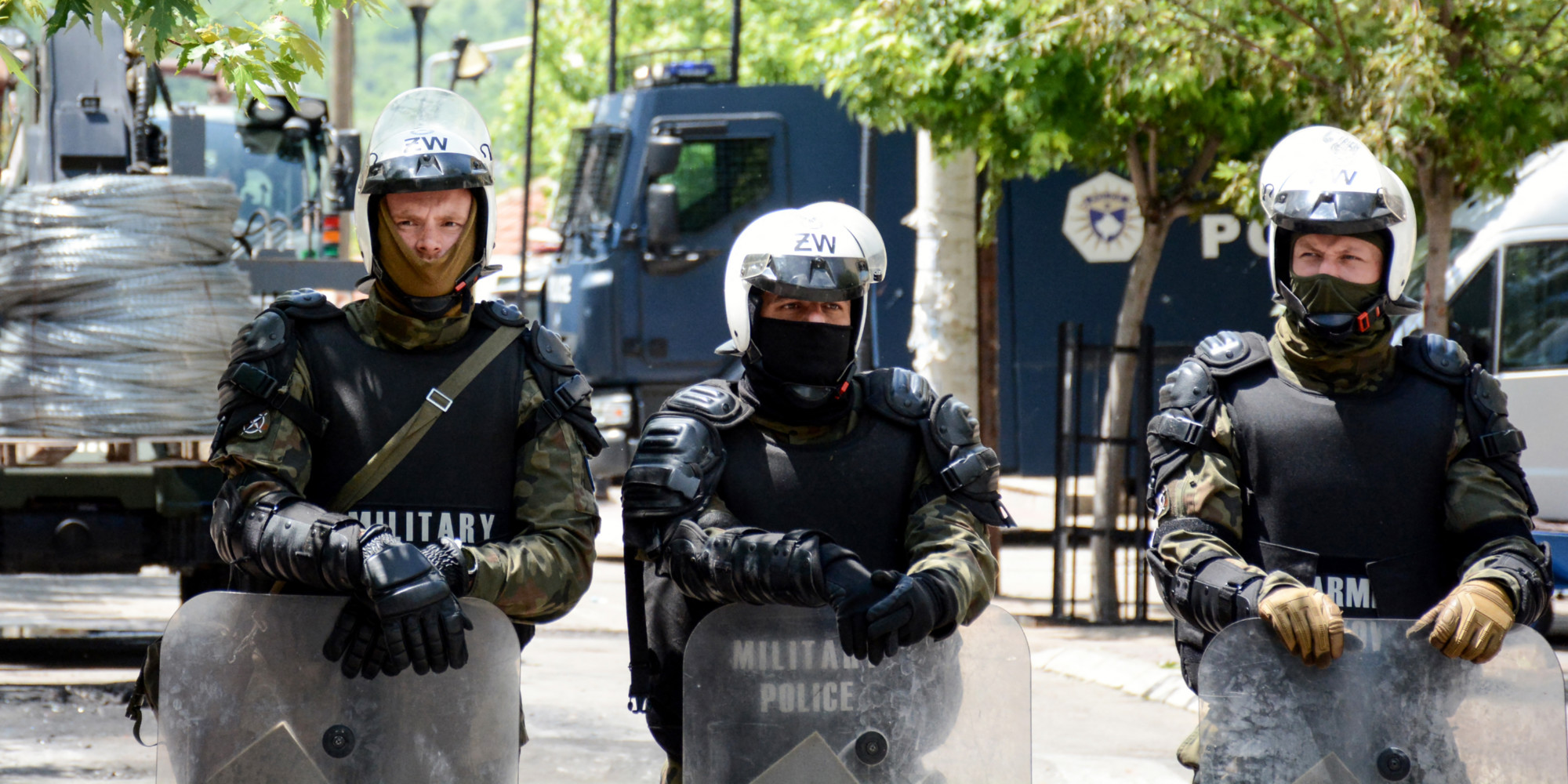Europe 1 with AFP / Photo credit: AFP 16:42 p.m., May 30, 2023
Faced with the clashes that engulfed northern Kosovo on Monday, NATO announced Tuesday the sending of new forces to this territory located in southern Serbia and mainly populated by Albanians. Serbia, supported by its Russian and Chinese allies, has never recognized the independence proclaimed in 2008 by its former province.NATO announced Tuesday the sending of new forces to Kosovo where Serb demonstrators are still gathered in front of a municipality in the north of the territory, scene the day before clashes that left thirty wounded among international soldiers and fifty among the protesters. "The deployment of additional NATO forces to Kosovo is a prudent measure to ensure that KFOR (the alliance-led force in the former Serbian province) has the capabilities it needs to maintain security," Admiral Stuart B. Munsch said in a statement issued in Naples.
In Zvecan, soldiers in Kfor riot gear placed a metal barrier around the town hall to prevent several hundred Serbs from accessing it, an AFP journalist reported. Three armoured vehicles of the Kosovo police, whose presence still arouses the ire of the majority Serbs in four localities in northern Kosovo, were parked in front of the town hall. The Serbs boycotted the April municipal elections in these cities, which resulted in the election of Albanian mayors with a turnout of less than 3.5%.
Serbia has never recognised Kosovo's independence
These mayors were sworn in last week by the government of Albin Kurti, the prime minister of this territory overwhelmingly populated by Albanians, ignoring calls for appeasement launched by the European Union and the United States. Serbia, supported by its Russian and Chinese allies, has never recognized the independence proclaimed in 2008 by its former province, a decade after a deadly war between Serb forces and Albanian independence rebels.
Premium Bootstrap Themes
Tensions regularly erupt between Belgrade and Pristina. Some 120,000 Serbs live in Kosovo, out of 1.8 million inhabitants. About one-third of them live in the North. The demonstrators are demanding the departure of Albanian mayors deemed "illegitimate" as well as that of the Kosovar police. The situation had already degenerated on Friday when the mayors came to take office accompanied by the Kosovar security forces. On Monday, in a new bout of fever, Serb protesters tried to force the front door of the Zvecan town hall but were pushed back by Kosovar forces. KFOR then tried to separate the two sides before starting to disperse the most violent protesters.
EU calls on warring parties to 'de-escalate tensions immediately and unconditionally'
The protesters responded by throwing stones, bottles and Molotov cocktails at the soldiers. 19 Hungarian soldiers and 11 Italians were injured in the clashes, KFOR said in a statement on Tuesday, adding that they suffered "fractures and burns caused by improvised incendiary explosive devices". "Three Hungarian soldiers were wounded by firearms," the source said. At least 52 people were injured in the ranks of Serb protesters, three of them seriously, Serbian President Aleksandar Vucic said. Five Serb protesters suspected of involvement in the clashes have been arrested, according to Kosovo police.
>>
READ ALSO – Roland-Garros: understand everything to the controversial message of Djokovic on Kosovo
Belgrade has ordered the Serbian army to place itself on high alert, as has been the case regularly in recent years. Kosovo police described the situation as "fragile but calm" and called on residents "not to fall into the trap of calls for violent demonstrations and provocations". "Security in the north of the country has deteriorated to the point of putting lives at risk." Faced with this umpteenth crisis between the two former enemies, the European Union called on Serbs and Kosovars to "defuse tensions immediately and unconditionally". Paris called on the "parties, in particular the Kosovo government, to immediately take the necessary measures to reduce tensions."
Aleksandar Vucic denounces "Pristina's unilateral decisions"
The Serbian president met Tuesday in Belgrade with the ambassadors of the Quinte, five NATO member powers that are closely watching the Western Balkans, but announced that he would also hold talks with representatives of Russia and China. Meanwhile, Moscow called on the West to "finally put an end to its false propaganda and stop blaming the deperate Serbs for the incidents in Kosovo."
View this post on Instagram
A post shared by Александар Вучић (@avucic)
"Pristina's unilateral decisions lead to violence against the Serb community, which takes us away from lasting peace and stability in the region," Vucic said on Instagram after meeting Western diplomats. "The rapid withdrawal of false mayors and members of the so-called special forces from Pristina is the condition for preserving peace in Kosovo."

